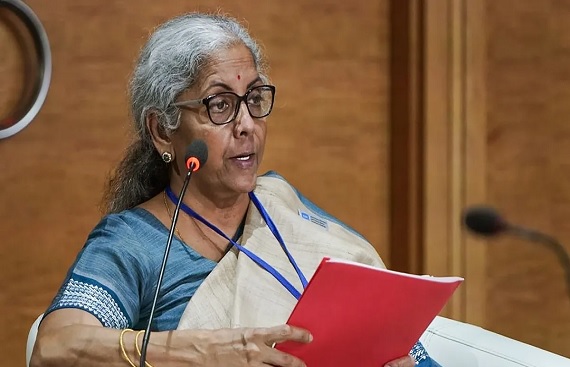Indian Companies Granted Direct Listing on GIFT-IFSC's Global Markets
By
siliconindia | Thursday, 25 January 2024, 03:20 Hrs

The Indian government has granted permission for public companies in India to directly list their securities on the international exchanges within the GIFT International Financial Services Centre (GIFT-IFSC). Provisions have been made to establish a comprehensive regulatory framework facilitating this. Finance Minister Nirmala Sitharaman announced in July that both listed and unlisted companies would be able to engage in direct listing on IFSC exchanges. This initiative aims to provide Indian companies with access to more affordable foreign capital, stimulate foreign investment and diversify the investor base.
The Finance Ministry's Department of Economic Affairs has revised the Foreign Exchange Management (Non-debt Instruments) Rules, 2019, and officially introduced the scheme for the direct listing of equity shares of companies incorporated in India on international exchanges. Simultaneously, the Ministry of Corporate Affairs (MCA) has released the Companies (Listing of Equity Shares in Permissible Jurisdictions) Rules, 2024.
"These, together, provide an overarching regulatory framework to enable public Indian companies to issue and list their shares in permitted international exchanges. As of now, the framework allows unlisted public Indian companies to list their shares on an international exchange. SEBI (Securities and Exchange Board of India) is in the process of issuing the operational guidelines for listed public Indian companies," the Finance Ministry said in a statement.
The international stock exchanges at GIFT-IFSC India International Exchange and NSE International Exchange are currently prescribed as the permitted stock exchanges. These exchanges are under the International Financial Services Centres Authority (IFSCA) regulatory supervision. GIFT-IFSC is India's first international financial services centre set up with the objective of connecting India with global opportunities while helping the Indian economy connect with the global financial system and facilitating the seamless flow of global capital into India.
"This policy initiative will reshape the Indian capital market landscape and offer Indian companies, especially start-ups and companies in the sunrise and technology sectors, an alternative avenue to access global capital beyond the domestic exchanges. This is expected to lead to better valuation of Indian companies in line with global standards of scale and performance, boost foreign investment flows, unlock growth opportunities and broaden the investor base", the Finance Ministry said.
Indian public companies will now have the option to raise capital in rupees from domestic markets and in foreign currency from global investors through the International Financial Services Centre (IFSC). "This initiative will particularly benefit Indian companies going global and having ambitions to look at opportunities for expanding their presence in other markets. It is also expected to provide a boost to the capital market ecosystem at GIFT IFSC by the provision of new investment opportunities for investors, diversification of financial products and by enhancing liquidity", the ministry said.
As per government regulations, unlisted companies aiming for international exchange listings are not obligated to simultaneously list on domestic exchanges. Nevertheless, there is no prohibition for these companies to choose dual listings on both domestic and international exchanges. The equity shares listed on global exchanges will contribute to the company's foreign holdings. It's important to note that public companies in sectors restricted for Foreign Direct Investment (FDI) are excluded from issuing shares under this scheme.
